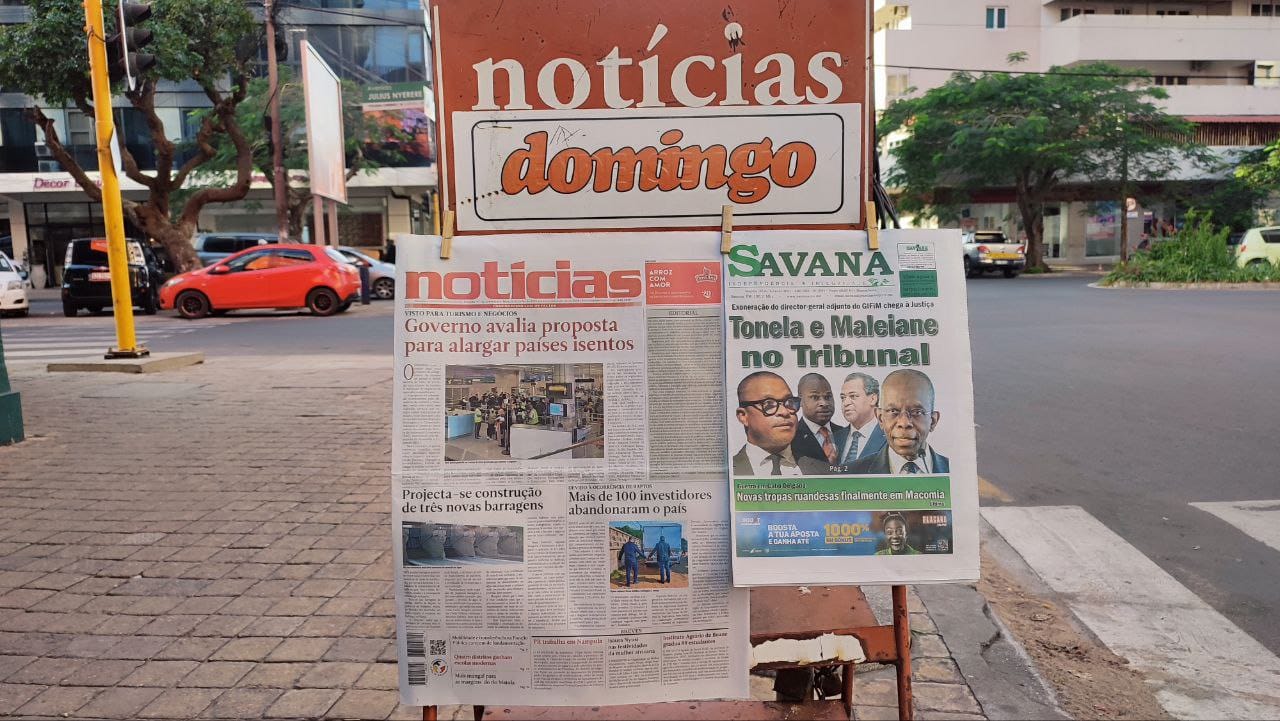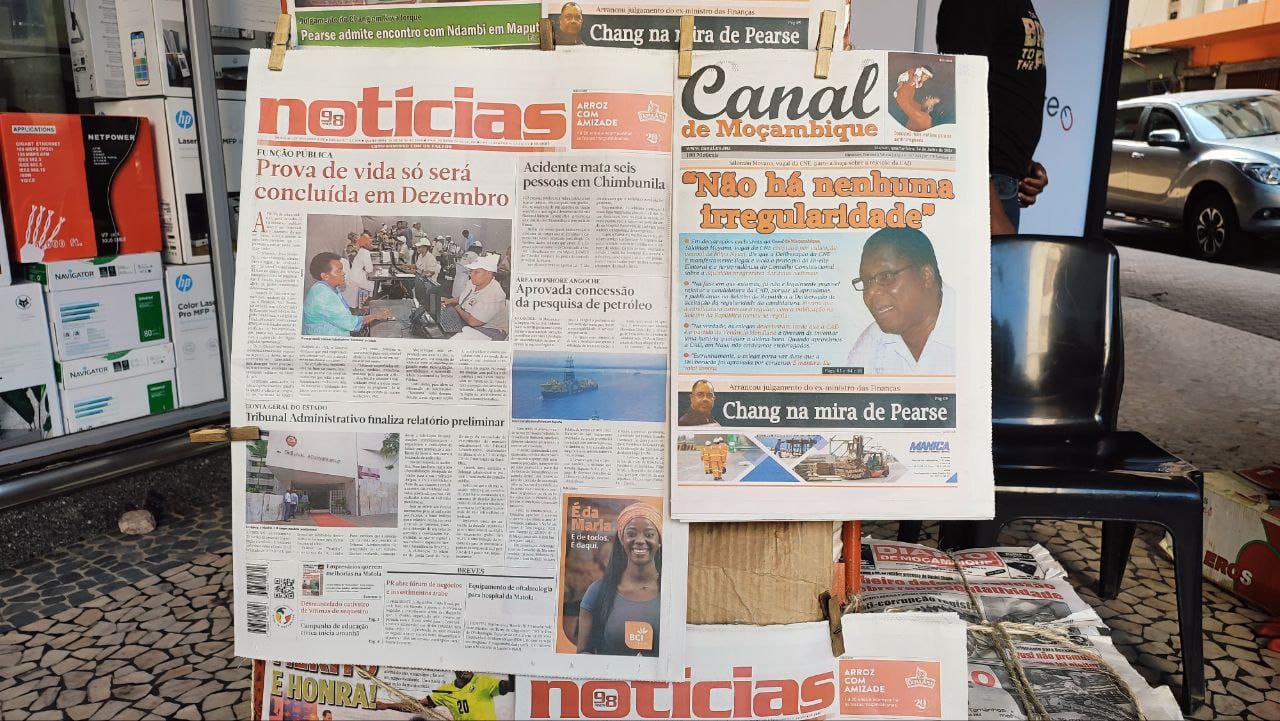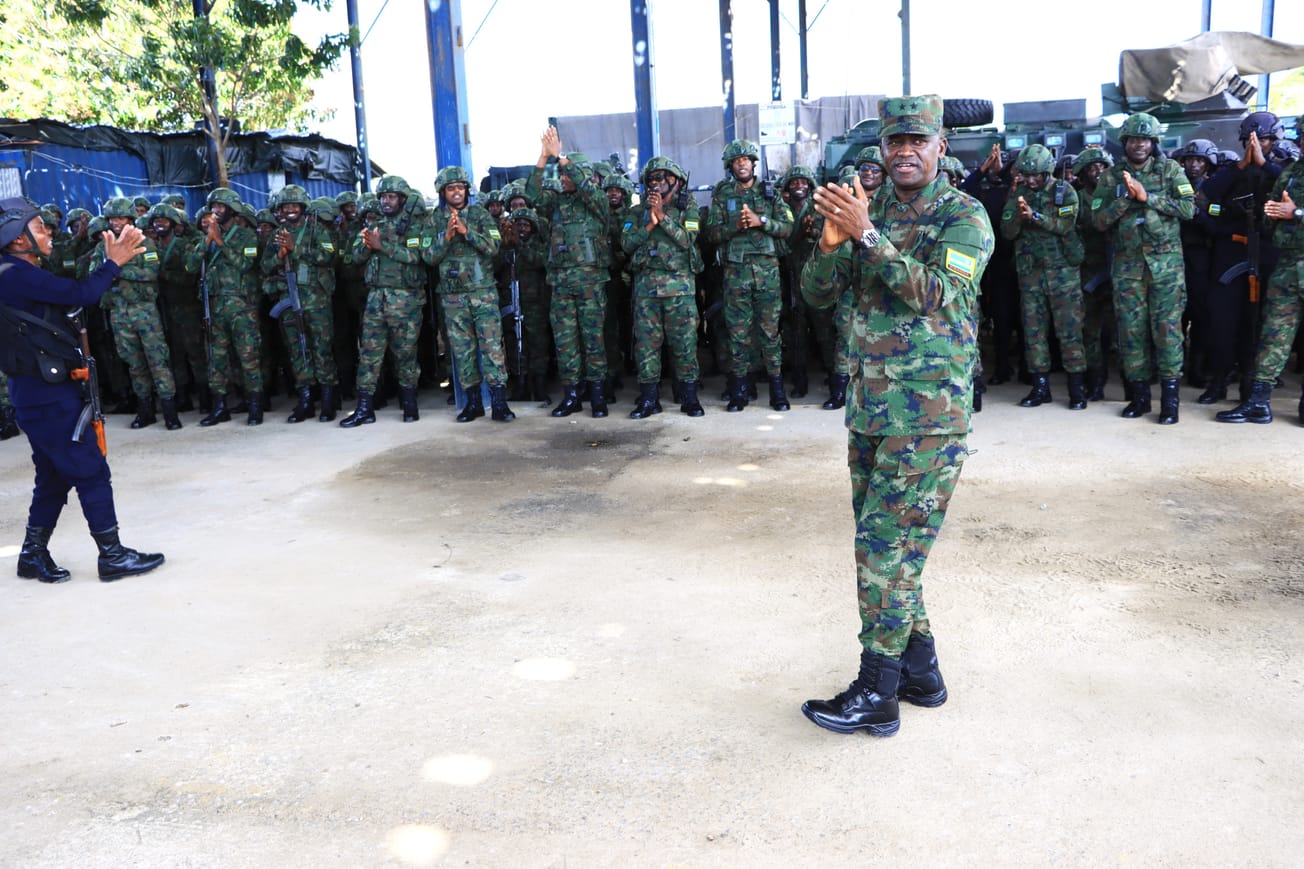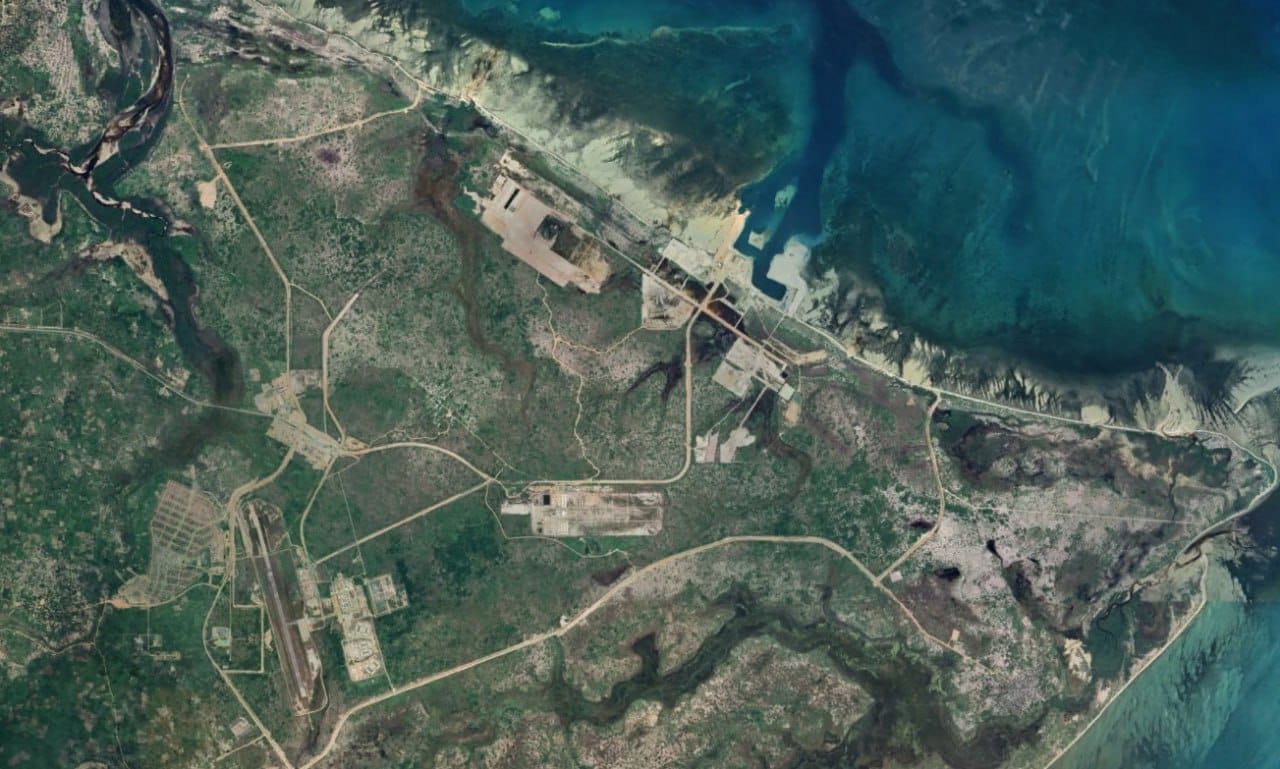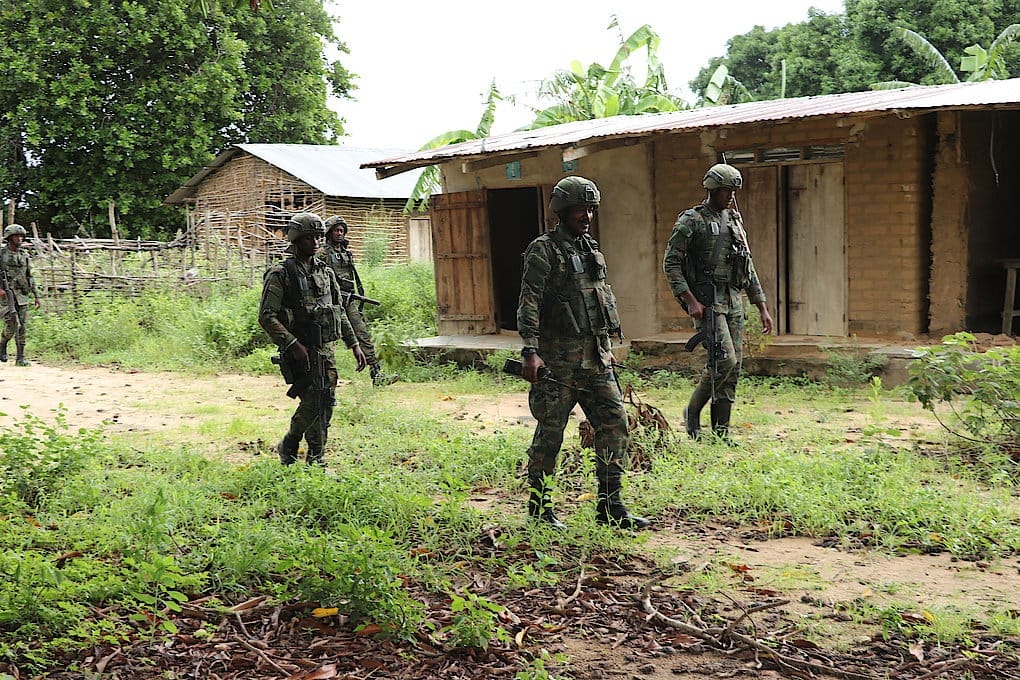Agenda:
- Tomorrow: Council of Ministers’ weekly meeting
The latest from Zitamar News:
Total suspends construction at Mozambique LNG as fighting reaches project perimeter
Total has suspended all construction work at its LNG project on the Afungi peninsula in Cabo Delgado following a spate of violent incidents close to the site
The best of the rest:
- Turkey spied on regime opponents in Mozambique, document shows (Nordic Monitor)
- Cyclone Chalane kills seven (Lusa, Lusa)
- Health workers selling fake covid-19 test results (Carta de Moçambique)
- Mozambique reopens border to help migrant workers return to South Africa (RFI)
- Postpone LNG developments until we have a regime able to manage them (Carta de Moçambique)

Turkey spied on regime opponents in Mozambique, document shows (Nordic Monitor)
Turkey’s former Ambassador to Mozambique spied on critics of Turkish President Recep Tayyip Erdoğan, according to a secret Turkish Foreign Ministry document obtained by Nordic Monitor, a Sweden-based, Turkey-focused investigative journalism project. According to the document, dated 16 September 2016, Aylin Taşhan, Turkey’s first ambassador to Mozambique, sent an intelligence cable to Ankara including the names and identities of critics of President Erdoğan as well as institutions and organizations set up by these people. The people who were spied on are believed to be affiliated with the Gülen movement, a group that is critical of the Turkish government. The document listed the names of 32 individuals as well as profiling several companies run by Turks, such as DECO Construction Limitada, Turkmall Limitada, Isparta Construction Limitada, Willow International School Lda and NGO Ilhas da Paz. Following a similar pattern seen in other diplomatic missions Turkey maintains in foreign countries, the Turkish Embassy in Maputo shared the list of persons living in the country so that their passports could be canceled by the Turkish Interior Ministry with no administrative or judicial investigation. The cancellation of passports prevents applications from extending permits or visas for legal stays; and paves the way for deportations and renditions. In December 2016 Ambassador Taşhan was made general director of the Turkish foreign ministry’s intelligence section, where she continued to run large-scale spying activities using Turkish embassies and consulates around the world to gather intelligence. In December 2020, she was appointed ambassador to Slovenia, where Nordic Monitor has also confirmed a similar spying campaign.
We have not independently verified Nordic Monitor’s report, but the outfit appears to be run by credible journalists, albeit with an axe to grind against the Erdogan regime. That regime is known for spying on its opponents — Gülenists in particular — abroad, and for the tactic of cancelling passports. A source directly affected by the issue told Zitamar that the embassy in Mozambique has not gone so far as to cancel passports, but has been failing to renew expired passports. For a time, it also refused to issue passports for children born to Turkish parents in Mozambique, but changed course on that under pressure from the international community, the source said. The Turkish Embassy in Maputo had not responded to a request for comment by the time of sending this newsletter.
When President Erdogan paid an official visit to Mozambique in 2019, there was an open clash with Mozambican authorities when he asked for the handover of Turkish citizens accused by the official authorities of being involved in anti-government activities. Some of those Turkish citizens are known to have strong economic ties with Mozambican elites — including former defence minister Atanasio Salvador M’tumuke (see story).
Cyclone Chalane kills seven (Lusa, Lusa)
Seven people, including two children, died during the storm caused by Cyclone Chalane, the deputy director of the National Institute for Disaster Management, Belé Monteiro, said. Chalane made landfall on 30 December and passed across central Mozambique, affecting the provinces of Sofala and Manica. The storm affected 3,600 people, destroying houses and agricultural areas. State-owned power utility EDM has said that the storm affected around 900 electricity poles, with damage amounting to €110,000 ($134,000) based on a preliminary report. Marcelino Gildo of EDM said that an evaluation was still underway, and that the company was working to get the entire power grid operational.
Seven deaths is a heavy toll for a storm that surprised everyone by, thankfully, being relatively mild. But flooding remains a risk due to heavy rains in eastern Mozambique and Zimbabwe.
Health workers involved in selling fake covid-19 test results (Carta de Moçambique)
Health professionals are helping to sell fake negative covid-19 test results for MZN3,000-3,500 (around $40-$46). One of Carta’s correspondents acquired a negative test result signed and stamped by the National Institute of Health, and was told not to open the report, as it had to be opened at the border by other health professionals. The scheme involves an extensive network of people, from security officers to directors of health centres in Maputo, Carta notes. According to a document that Carta holds, genuine test results are supposed to be sent two days after a sample is collected, but the fake results contain a pre-written result and the name, age and gender of the applicant is then filled in.
Corruption in testing procedures is probably not limited to Mozambique, so infected South Africans may also be getting into Mozambique on false health pretences. Mozambique’s tourism industry has benefited hugely from the decision to keep the South African border open over the holiday period, but already the rise in covid cases is alarming. Yesterday, Mozambique registered the highest daily number of infections yet — 341, versus a previous record of 305 cases announced on 28 November.
Mozambique reopens border to help migrant workers return to South Africa (RFI)
The Ponta do Ouro border post with South Africa, in southern Mozambique, has been reopened following a nine-month closure as part of measures to prevent the spread of covid-19. According to a provincial migration official, the decision seeks to help the return of Mozambicans to work in South Africa after the festive season, which could amount to around 1,500 people. Meanwhile, the Ressano Garcia border crossing, also in Maputo province, is seeing an increase in movements, with queues reaching 20km in length on Sunday.
Opening the Ponta / Kozi Bay border crossing will also allow some South African holidaymakers to return home more easily from Ponta do Ouro to Kwa-Zulu Natal. The decision to keep the crossing closed until after New Year was wise, as KZN is suffering a serious second wave of coronavirus, while Mpumalanga, where the Ressano Garcia / Lebombo border crossing is, is not.
Postpone LNG developments until we have a regime able to manage them (Carta de Moçambique)
Total’s decision to evacuate Mozambicans from the LNG site in Palma — not only because of security concerns, but the latest wave of covid-19 to spread through the camp – indicates that gas exploration is being postponed, which is the most “sensible thing to do today,” Carta editor Marcelo Mosse writes in a ‘Letter to readers’. The government is failing to deliver on local content – most of the LNG camp was pre-fabricated in Europe – and failing to end the Cabo Delgado war, which has led to over 500,000 Mozambicans being displaced. “The exploitation of gas in the current conditions does not serve Mozambicans. Not even with the infamous sovereign wealth fund. In fact, the greatest sovereign wealth fund is our forests and our seas, which, even without war, this generation that engaged in armed struggle cannot manage in a dignified manner,” he writes. Mozambique’s huge debts to China could already have effectively been paid, in kind, through the selling of precious timber and seafood. “It is intriguing how this ruling elite is unable to correct the disparities in fisheries and forests. In gas, we run the same risk. Better stop!”
Mosse is one of the most high-profile Mozambicans to come out in favour of suspending the gas projects – and he has already been criticised in Facebook posts by some Mozambican commentators for being unpatriotic. He makes important points about the fact that there has been minimal local content development to date, that the war has ravaged many of the communities – and that, Mozambique is not doing more to protect its seas and forests – two things that essential for the health and development of the country, long after the gas is gone (or left stranded in the ground).
Announcements
- Ncondezi Energy said that it had submitted a third-party power market outlook study and an updated feasibility study to state-owned electric utility EDM for its 300MW Ncondezi coal-fired power station project in Tete province. The studies constituted the last outstanding requirements from EDM, the company said. Ncondezi chief executive Hanno Pengilly said that he expected feedback from EDM early in the new year (see here)
- The National Institute of Statistics said that it had published updated projections for the population of Mozambique in 2021, which is expected to total 30.8m people.It also published its index of economic activities for September 2020 (see here) and indicators for industrial productivity and prices for the third quarter of the year (see here)
- Montepuez Ruby Mining said that it had resettled 105 families in the new village of Namanhumbir, for people who have been relocated off the territory of its ruby mining concession. The company said that it had spent $10m building the village, which covers 2,400 hectares and has water and electrical connections and various community buildings including a vocational training centre, for which MRM said it had developed a training programme.
- MRG Metals announced the results of assays from its maiden aircore drilling programme on its Zulene and Viaria targets of its Corridor South heavy mineral sands tenement, which it said showed “thick zones of heavy mineral sand mineralisation” (see here)
- The Bank of Mozambique published its financial stability bulletin for December 2020
- Agriterra published annual results for the year ended 31 March, including negative EBITDA of $1.4m, up from -$1.7m in 2019, on increased revenue of $12.9m (see here)
- Kibo Energy said that it had submitted an optimised final draft of its definitive feasibility study for its Benga 150MW coal-fired power station project to state-owned electric utility EDM on 17 December. The company added that it had signed a binding coal supply term sheet with Vale Mozambique to supply about 650,000 tonnes a year of coal to the project. Discussions with EDM on a power purchase agreement have been scheduled for January 2021, Kibo said (see here)
- Triton Minerals announced that its largest shareholder, Jigao International Investment Development Company, was in advanced talks with an unnamed Chinese state-owned construction company about helping Triton with contractor mobilisation, bulk earthworks and financing for its Ancuabe graphite project in Mozambique. The company added that Peter Canterbury would step down as chief executive on 31 January, with chief financial officer David Edwards replacing him on an interim basis. Canterbury will continue as a non-executive director (see here)

